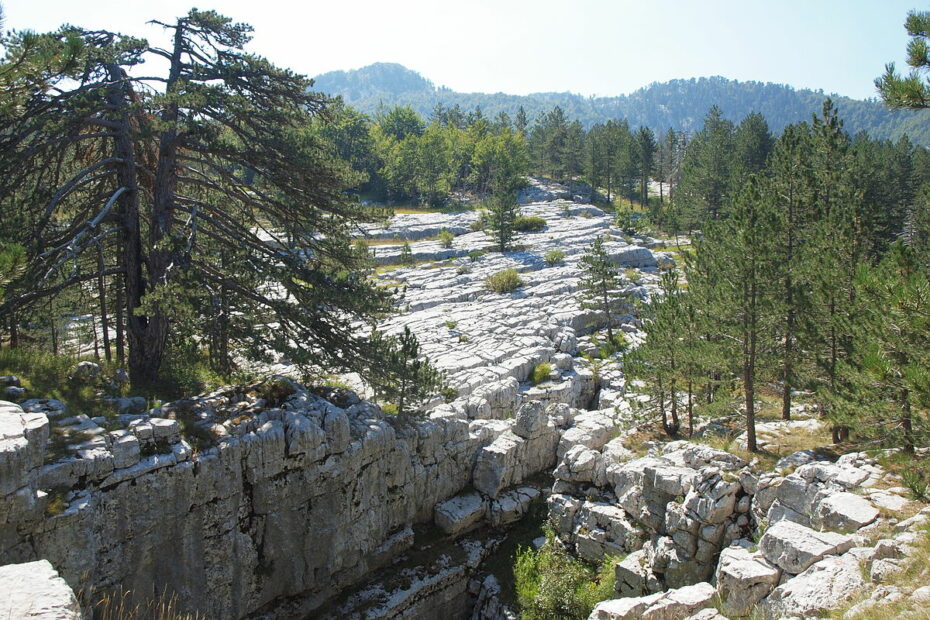ESEH region Croatia–Serbia–Slovenia is organizing the summer school Environmental History and Historical Ecology of the Dinaric Karst.
The school will be held in Slovenia, 25-30 September 2023.
It involves 21 lectures held by researchers (most of them delivered on the premises of the University of Ljubljana), students’ group work, visits to museums, the Karst Research Institute and the Archives of the Republic of Slovenia, as well as three days of excursions to the Classical Karst, the famous intermittent Lake Cerknica and the karst of Bela Krajina.
The school is free of charge for students from CEEPUS countries, i.e. countries from Poland in the north to Albania in the south and from Austria and Czech Republich in the west to Bulgaria and Moldova in the east (https://www.ceepus.info/content/about).
Information about the application process:
Master’s students from CEEPUS countries (https://www.ceepus.info/content/about) interested in the topics of the school are welcome to apply. In case of interest, doctoral students also are eligible.
Application procedure:
- Step 1: Apply for the summer school by sending an e-mail to zwitter@ff.uni-lj.si by 31 March 2023. Priority will be given to students from faculties involved in the CEEPUS network EcoManAqua, nonetheless, a limited number of CEEPUS freemover grants (for highly motivated students from faculties in CEEPUS countries not involved in this CEEPUS network) also are available, so do not hesitate to apply, if your university is located in one of the CEEPUS countries (countries from Austria to Moldova and Bulgaria, and from Poland to Albania).
Selection of candidates: Selection of candidates will be based on your letters of motivation (so, write convincing letters of motivation (up to 1 page), including also your average study grade). Send them to ziga.zwitter@ff.uni-lj.si by the 31 March 2023. Candidates will be notified of the final selection by 7 April 2023.
- Step 2 (for students from abroad): Soon after 7 April, selected candidates will be asked to apply for the school using the CEEPUS online system; this is the formal basis for CEEPUS to cover your accommodation costs.
Accommodation for students from abroad: Slovenian CEEPUS will book your accommodation in a student dorm in Ljubljana, so do not book your accommodation yourself!
Costs:
Students from abroad:
Your accommodation will be paid by the CEEPUS.
+ the CEEPUS will kindly provide 180 EUR per student enabling your participation in the school free of charge (including your lunches Mon–Sat, entrance fees and costs of bus transport around Slovenia on the days of excursions, travel costs and lunches for lecturers delivering lectures at this summer school). If there is any money left, you will receive it. You are expected to organize your travel to Slovenia and back & to pay for it. Think of cheap Flix bus, train … connections.
Students from Slovenia: All school costs consist of entrance fees, bus transport around Slovenia on three days of excursions, and meals. In addition, students from other universities in Slovenia must arrange their accommodation in Ljubljana and pay for it.
Students of the University of Ljubljana’s Faculty of Arts: the Student Council of the University of Ljubljana’s Faculty of Arts and the Department of History kindly plan to support the school financially. Their budget is aimed at students of the University of Ljubljana’s Faculty of Arts. Consequently, participation in the school may be free of charge for students of the Faculty of Arts, or your participation fees will be very low. This will be clarified in the following months.
The general rule for Slovenian students reads: do not hesitate to apply for the school if you are interested in the topics dealt with. You will receive more detailed information on the costs of the school later and will still be able to withdraw your application at that time if the school turns out to be too expensive. Nonetheless, the school will not be costly, for students of the University of Ljubljana’s Faculty of Arts in particular. It will help you establish contacts with your colleagues interested in similar topics abroad.
ECTS points:
We submitted the application to get the right of awarding 3 ECTS points to participating Master’s students. We expect a favourable response. Participants will receive certificates documenting their participation in the school.
Image: Carbonate platform of the dinaric alps, karst geomorphy Bijela gora Montenegro, 2010. Wikimedia Commons.
Check here the detailed programme:
summer school EH Dinaric Karst